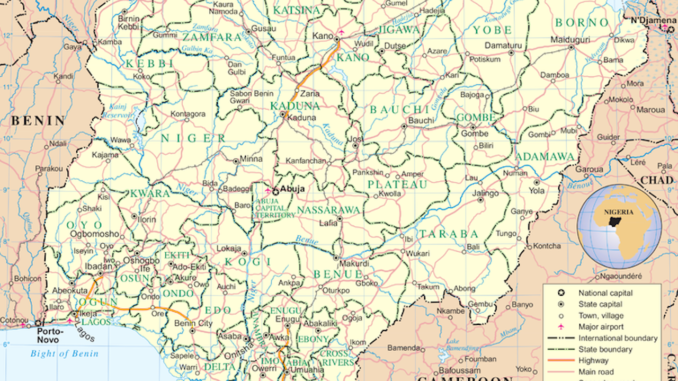
The call for Nigeria’s restructuring is gaining momentum by the day. Quite unprecedented is the curious demand from all territorial segments of the nation. Those who were originally opposed to it have joined the wagon of agitators. It is indeed tending towards what could rightly be described as the popular demand of the masses.
To that extent, the National Assembly that hitherto remained the major obstacle against the inevitability and whose responsibility it is to initiate the process may have no choice but to respect the will of the Nigerian people and join the band of the popular demand.
The main focus of this piece is to deliberate extensively on what the Nigerian nation stands to benefit from devolution of powers from the centre to the federating units.
Before going to that however, permit me to shed light on why in my own opinion our leaders, who of course are the infinitesimal minority, are bluntly opposed to the unavoidable way out of the political, social and economic logjam, that is, restructuring of the Nigerian nation. One, in no small measure, our leaders significantly profit from the present arrangement which favours concentration of too much money at the centre. This encourages corruption as different tribes are curiously desirous of milking from the avalanche of surplus resources at the centre thus claiming to have a share of the so-called national cake.
Two, the Nigerian Constitution, as presently composed, favours the ruling class more. They are therefore not favourably disposed to amending it as doing so automatically implies snatching powder and of course ill-gotten wealth from them. Three, regional autonomy with a relatively weak centre is unlikely to accommodate the like of immunity clause, automatic movement from state governors position to senators.
Four, under a restructured Nigerian nation, each autonomous region is most likely to face the uphill task of generating its own revenue to survive and for a sustainable development and growth.
The era of national revenue sharing in Abuja might have gone into extinction. The implication of this is that each regional government will be compelled to cut spending drastically, thus cutting its coat to its cloth. Five, most emerging regions certainly cannot afford to fund full-time legislature or sustain the extravagance associated with the general cost of governance.
The Nigerian nation will certainly profit from power devolution from the centre and of course regional autonomy in so many ways: Each region would be forced to manage its resources more prudently and judiciously giving little or no room for wasteful spending.
This will tame or cripple the endemic monster called corruption. Regional autonomy will certainly discover hidden goldmines, hitherto untapped resources and talents as each region will concentrate on its area of comparative advantage. There will be rapid and massive improvement in infrastructure development. Government will be closer to people at the grassroots.
Leaders resident in Abuja are unlikely to attend to the magnitude of road infrastructural decadence on Ota-Abeokuta road or remote area of Sokoto State, to mention but a few. Most regions would embrace economic diversification which would engender healthy rivalry among regions. Regional autonomy remains the easiest way to tackle corruption in Nigeria.
Matthew Adeleye, Ota, Ogun State
END

Be the first to comment